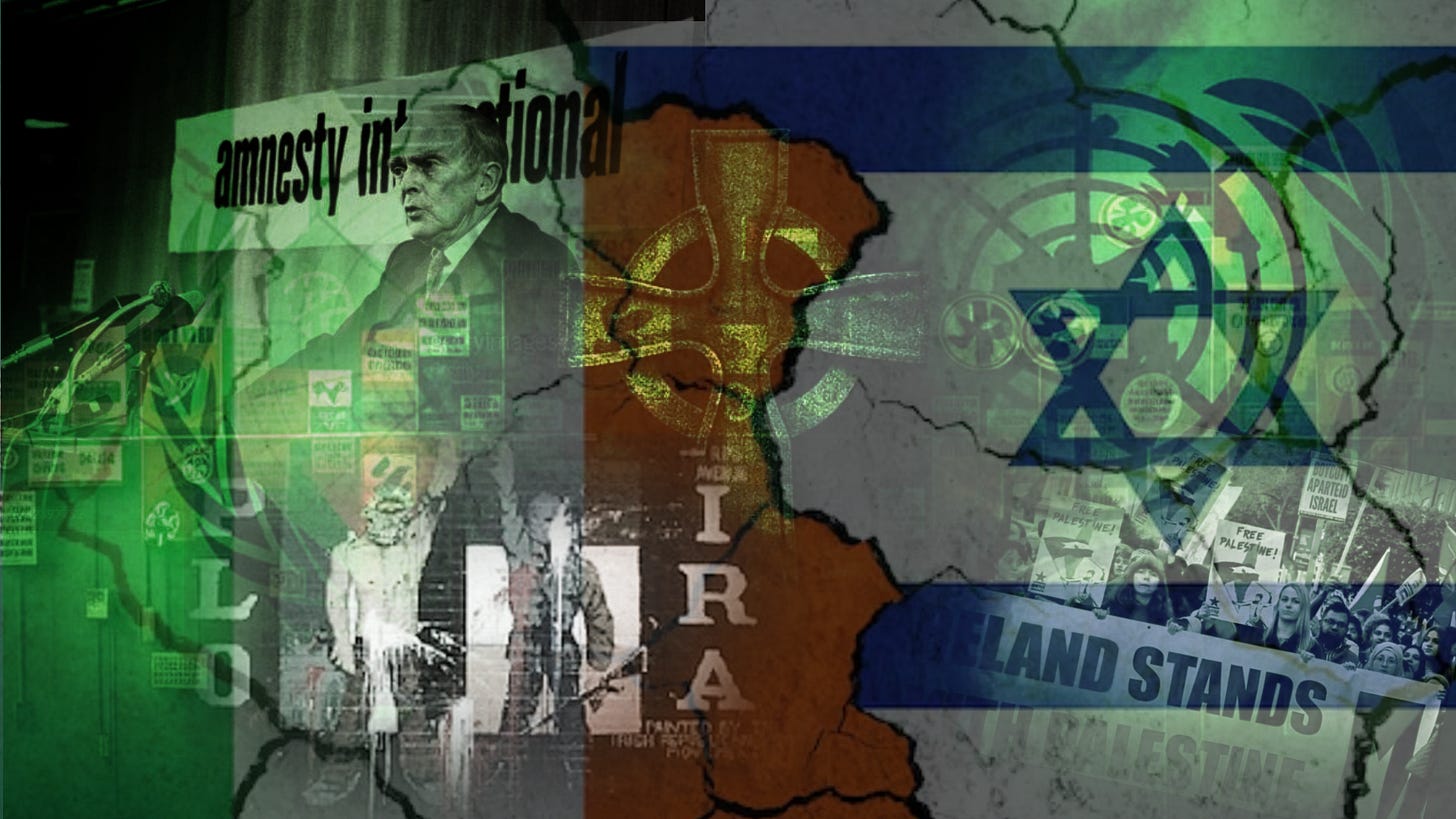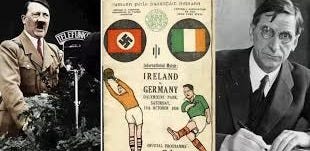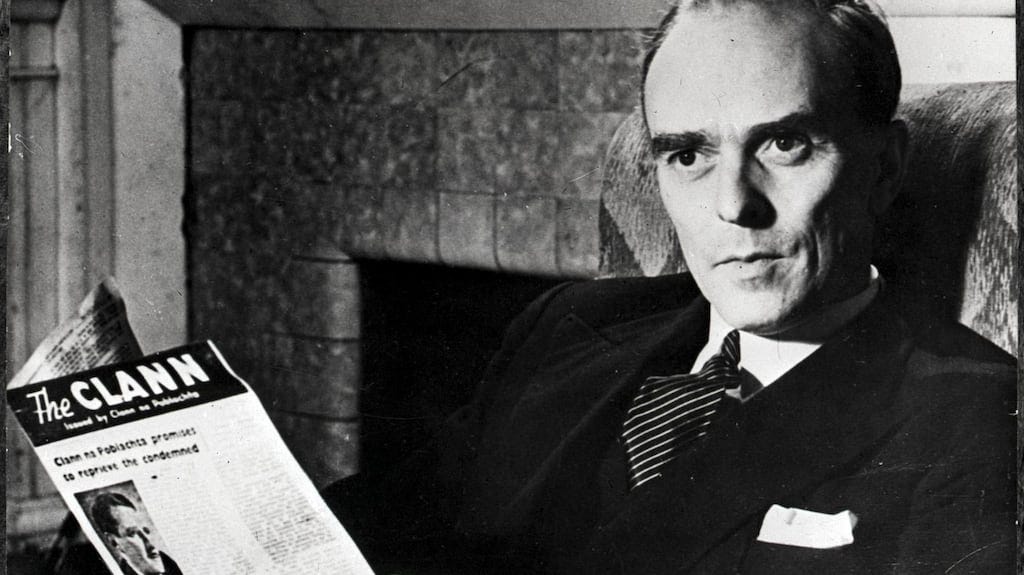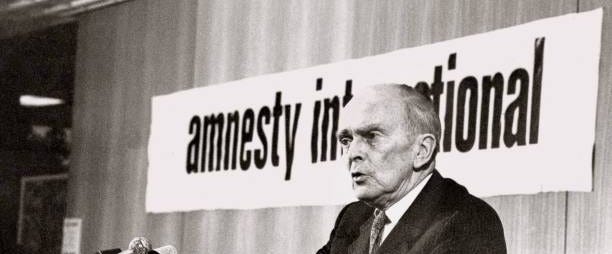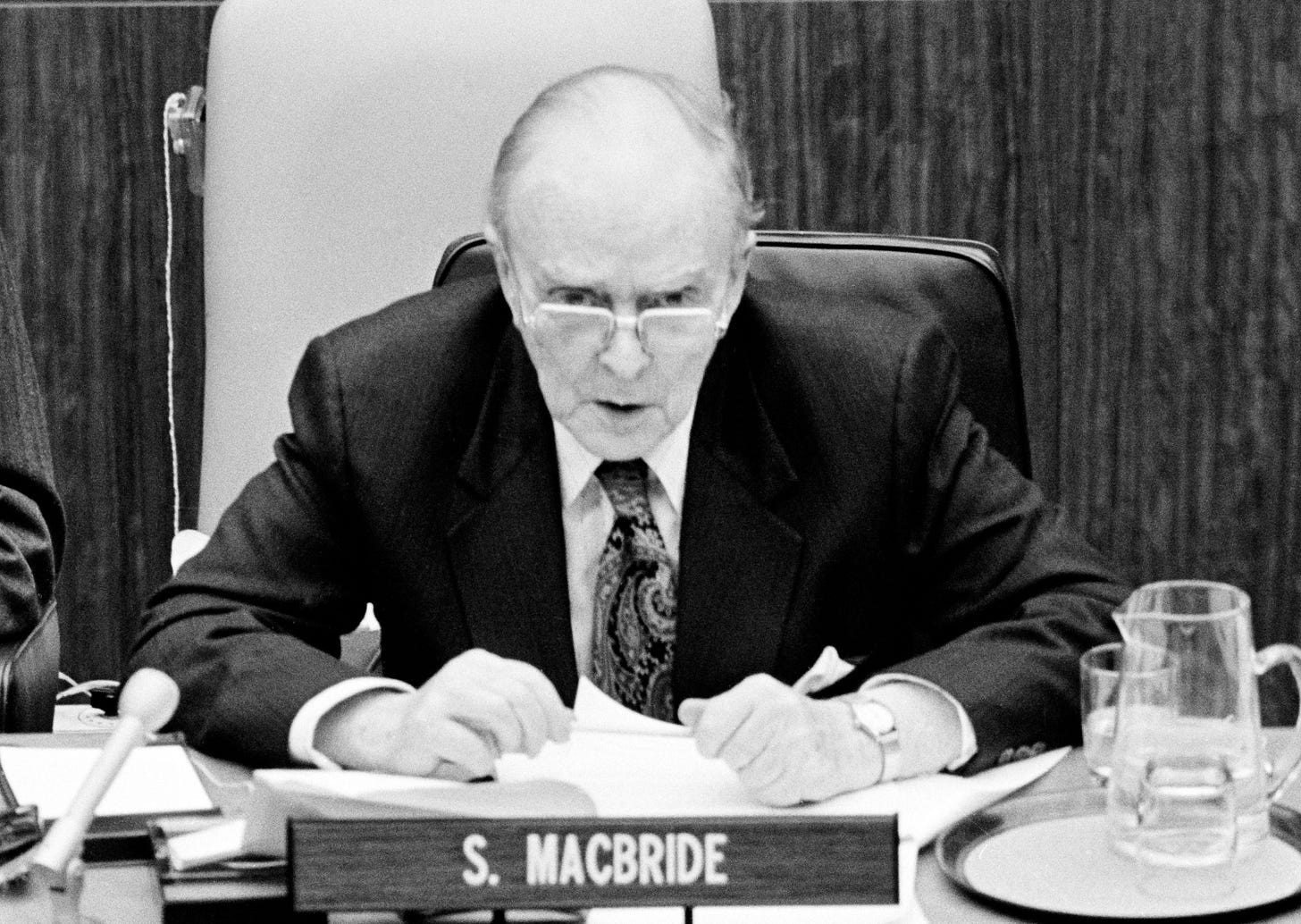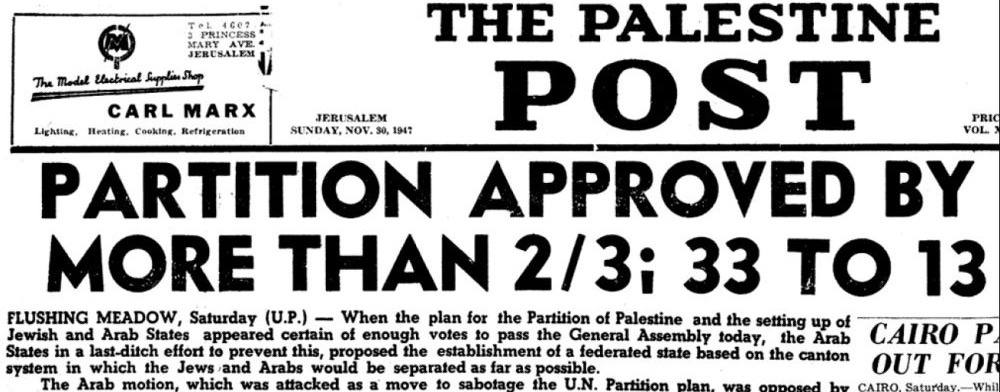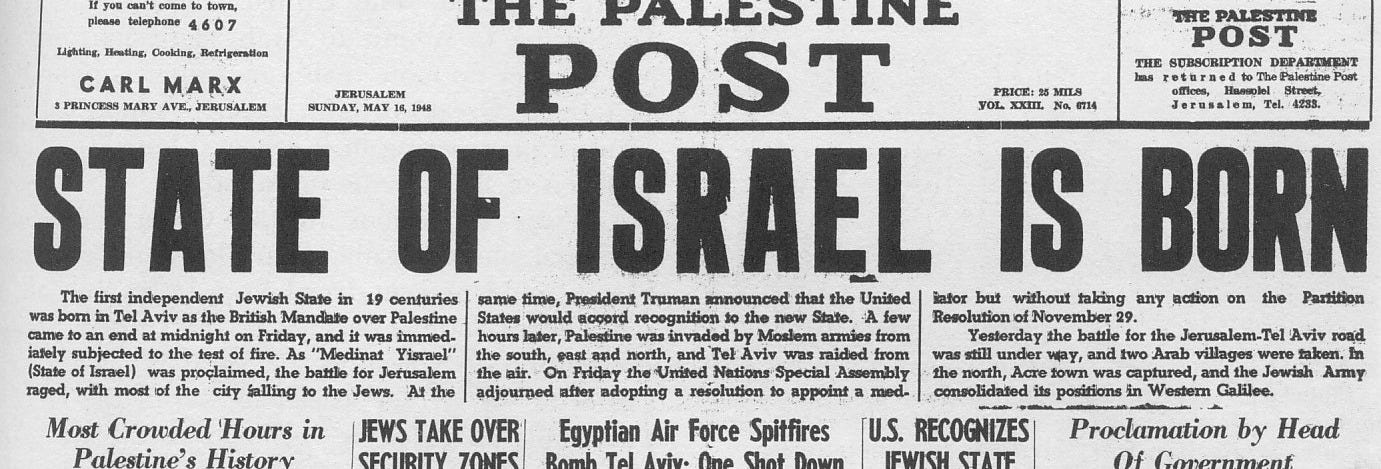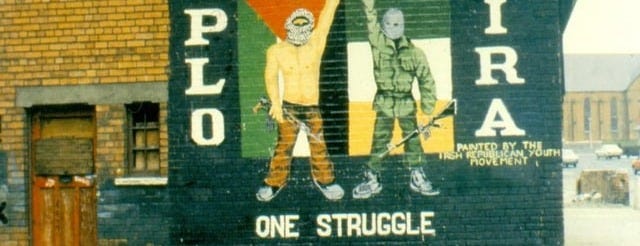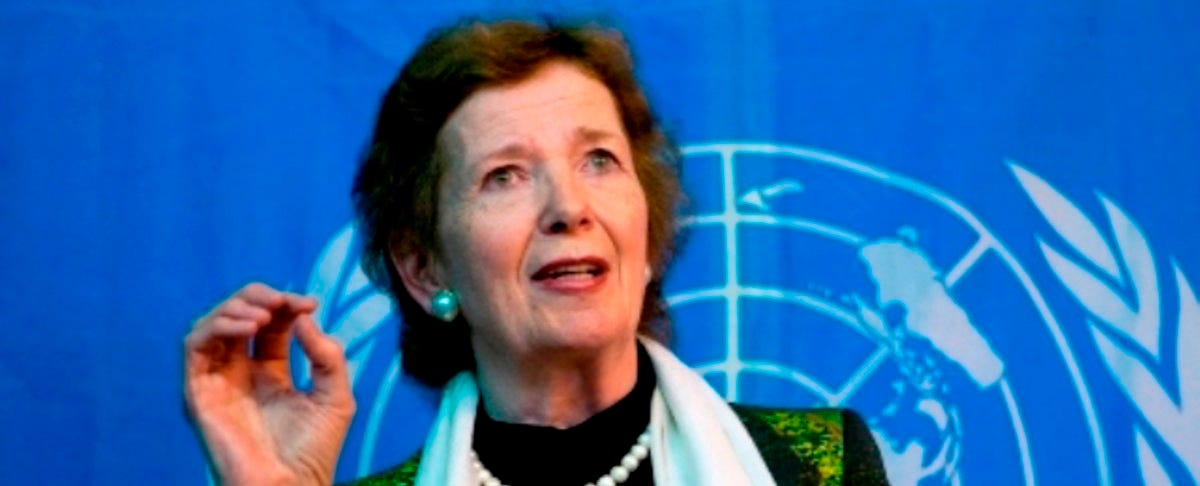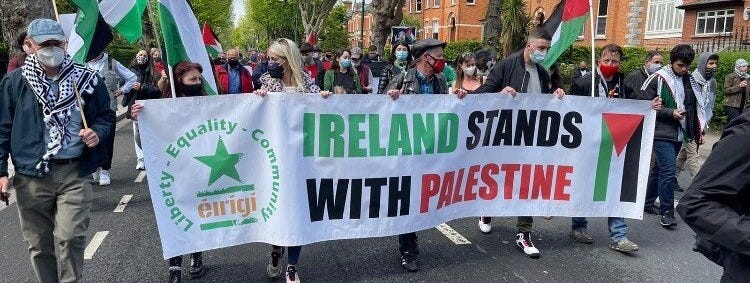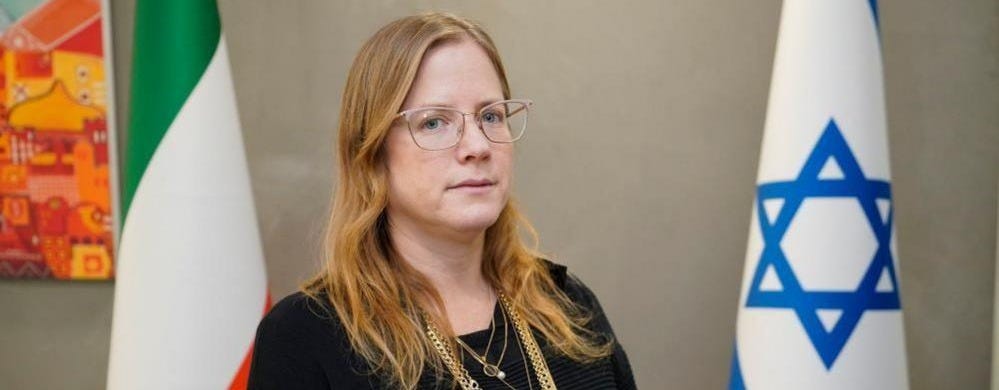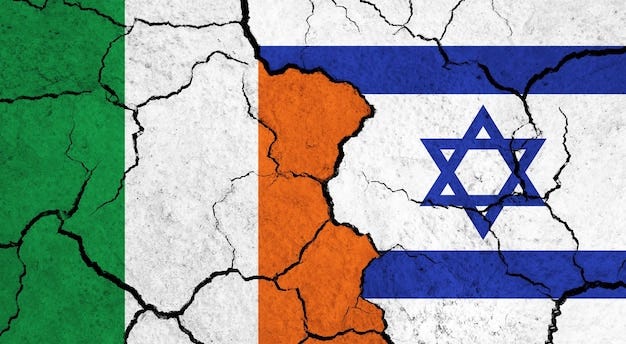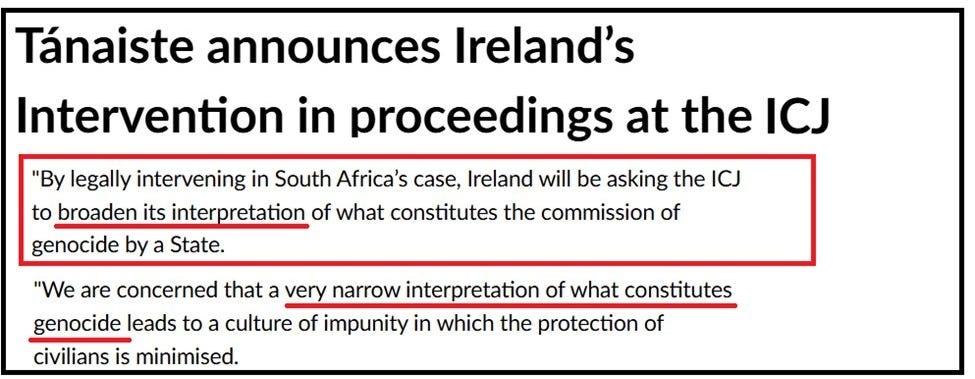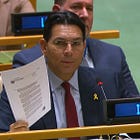The Brief and Bitter Diplomatic Dance: Ireland’s Hostile Relations with Israel
Ireland, Israel and Jews: A Legacy of Antisemitism and Hostility
On December 30, 1993, Ireland reluctantly upgraded its diplomatic relations with Israel, followed by opening embassies in Dublin and Tel Aviv three years later. While most Western nations had established ties decades earlier, Ireland waited until the Oslo Accords to establish full relationships with Israel.
However, Ireland’s decision was not a gesture of goodwill toward Israel. Instead, it was a calculated response to international pressure, aimed at maintaining its standing within the European and global diplomatic community. Two weeks prior to that, Ireland had allowed PLO Leader Yasser Arafat to visit and on the same day as upgrading relations with Israel, Ireland also invited the PLO to open an office in Dublin,
It wasn’t until three years later, on January 1, 1996, that Ireland officially opened its embassy in Tel Aviv, while Israel opened its embassy in Dublin on February 8, 1996. The PLO officially opened its representative office in Dublin on January 25, 1996.
In the 31 years since, Ireland has not only failed to build a constructive relationship with Israel but has actively worked to undermine it. Ireland has become one of the most vocal critics of Israel in the European Union, consistently using its platform to demonize and isolate the Jewish state.
A Troubled History of Antisemitism
Ireland's strained relationship with Jews and Israel is rooted in a dark history of antisemitism that long predates the state of Israel’s founding. Even before World War II, antisemitism was deeply entrenched in Irish society. Catholic priests perpetuated blood libels—the medieval conspiracy theory accusing Jews of ritually murdering Christian children and killing Jesus—which led to violent hostility against Jews. In the early 20th century, Jews in Dublin were harassed and intimidated, forcing many to flee their homes.
During World War II, Ireland adopted a policy of “strict neutrality”. While this stance may appear impartial on paper, it often veered into overt hostility toward Jews and indifference to their plight. Ireland closed its doors to Jewish refugees fleeing the Holocaust, enforcing policies that effectively banned their entry, with officials fearing that they would “disturb Ireland’s societal fabric”. While the Holocaust raged across Europe, Ireland refused to take a moral stand. Worse, its ambassador to Berlin, Charles Bewley, was a notorious Nazi sympathizer who openly praised Hitler's regime.
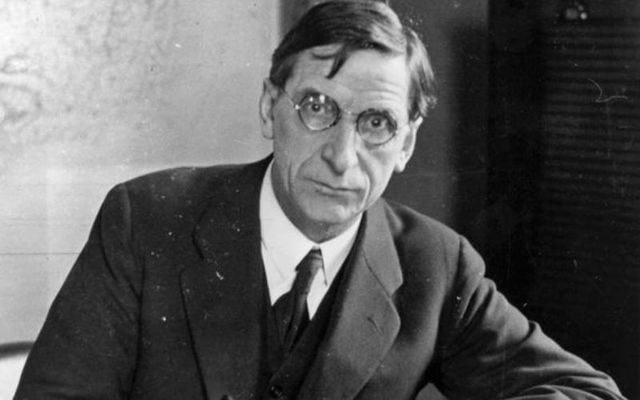
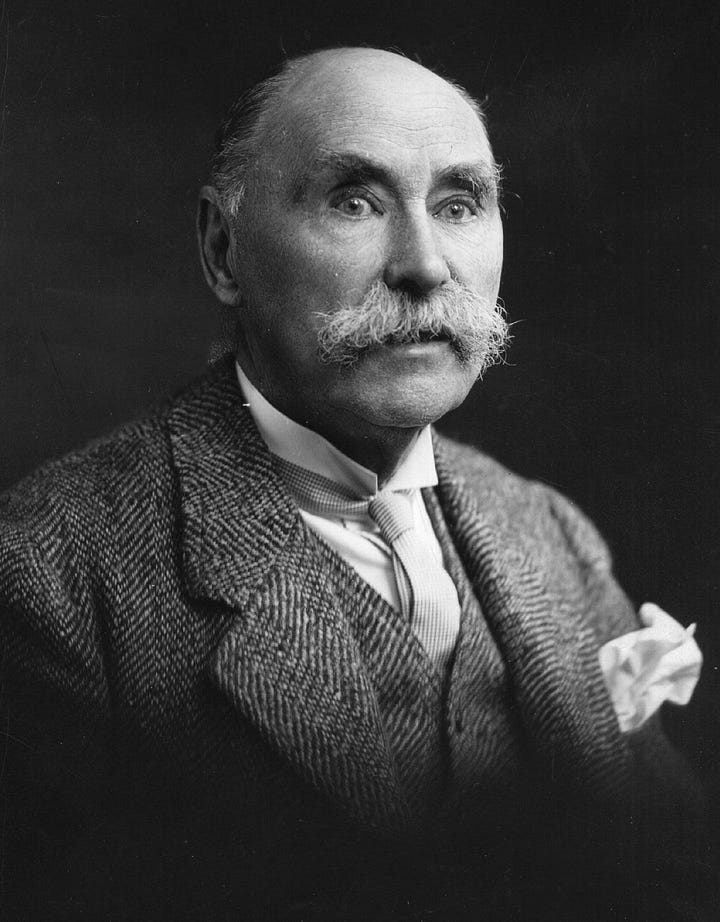
The full extent of Ireland’s moral failure became apparent in 1945, when Douglas Hyde, then Ireland’s first President, sent condolences to Germany following the death of Adolf Hitler. Compounding this disgrace, Éamon de Valera, Ireland’s Taoiseach (Prime Minister), visited the German Embassy in Dublin to sign a book of condolences. These actions went beyond the neutrality Ireland claimed during the war; they symbolized an indifference and complicity to Nazi atrocities and the suffering they caused.
Seán MacBride
Ireland’s Foreign Minister Seán MacBride, a prominent nationalist who served as Chief of Staff of the IRA and future Nobel Peace Prize laureate, was known for his strong antizionist views. MacBride, during the 1940s, voiced concerns about the potential impact of a Jewish state and was an advocate of Arab nationalism.
MacBride’s stance, which often aligned with Arab nationalist perspectives, was evident in his involvement and playing a leading part in the establishment of the Council of Europe in 1949, where he used the international platform to push for resolutions that were critical of Israel’s actions in the Middle East.
In the 1960s and beyond, MacBride became deeply involved in international human rights, but his views sparked controversy, particularly in relation to Israel. As a co-founder of Amnesty International, he championed global human rights, yet his outspoken support for Palestinian causes and criticism of Israeli policies led to tension with many pro-Israel advocates.
Seán MacBride served as the Assistant Secretary-General of the United Nations from 1973 to 1977, where he played a significant role in promoting decolonization and human rights, advocating for the independence of colonized nations. His tenure coincided with that of UN Secretary-General Kurt Waldheim, a former Nazi officer during World War II
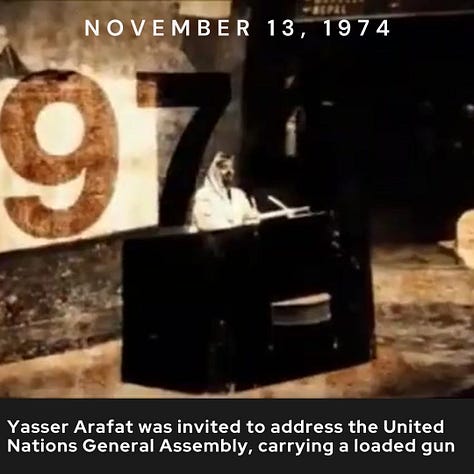
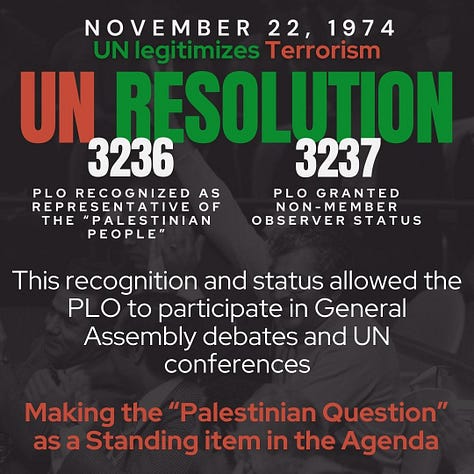
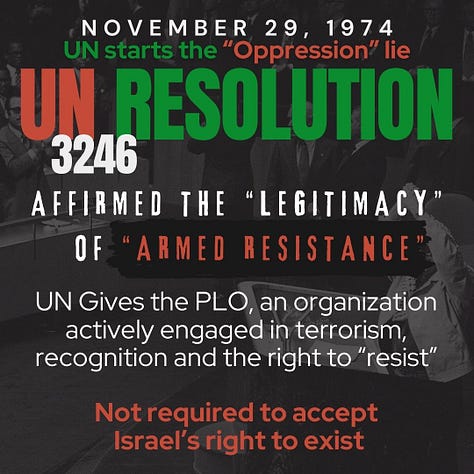
MacBride was a key figure in pushing anti-Israel resolutions during this period, particularly aligning with Arab nationalist movements. Notably, he was instrumental in facilitating Yasser Arafat's 1974 speech at the UN and the recognition of the Palestine Liberation Organization (PLO) as a legitimate representative of the Palestinian people. He also played a central role in legitimizing the concept of "Armed Resistance."
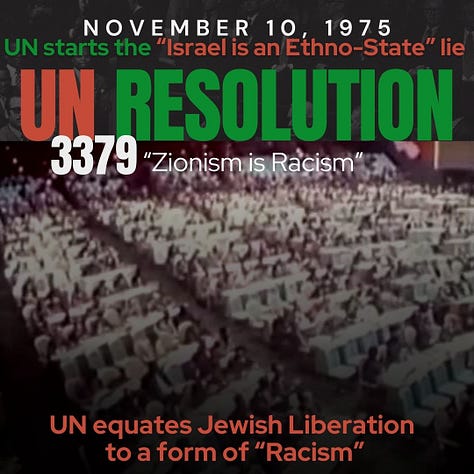
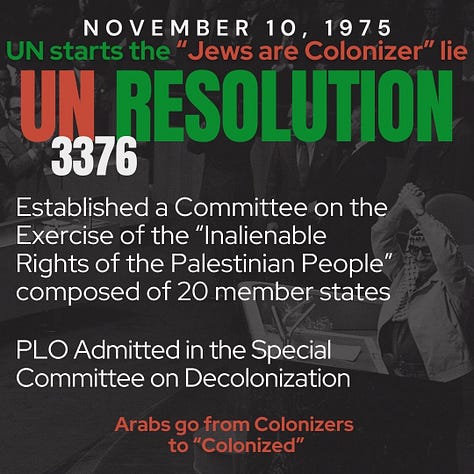
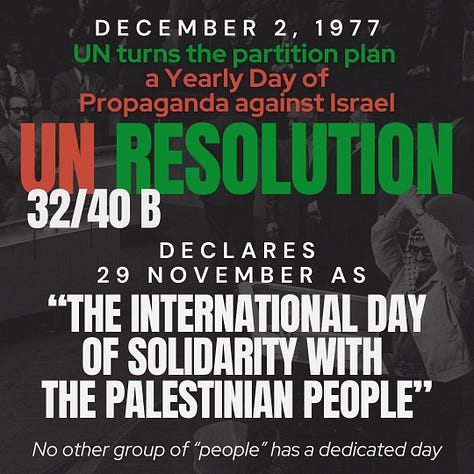
MacBride’s actions included UN General Assembly Resolution 3379 in 1975, which equated Zionism with racism, and helped establish special committees focused on "Palestinian Rights" and accepting the PLO in the “Decolonization Committee.” Additionally, in 1977, he supported the establishment of a "Day of Solidarity with the Palestinian People" before concluding his tenure as Assistant Secretary-General.
Reluctance to Recognize Israel and Opposition to Its Legitimacy
Before the Creation of Israel (Pre-1948)
Before the establishment of Israel in 1948, Ireland did not support the creation of a Jewish state in the British Mandate of Palestine. Influenced by its nationalist movement, Ireland aligned with the Arab cause, which opposed the establishment of a Jewish homeland.
Refusal to Recognize Israel After 1948
Despite Israel declaring its independence in 1948 and Ireland joining the UN in 1955, Ireland refused to recognize the new Jewish state for nearly a decade. Taoiseach Éamon de Valera maintained that Ireland would not recognize Israel until the Palestinian issue was resolved. It was not until 1963, that Ireland officially recognized Israel. Diplomatic relations were only established in 1975.
Ireland’s Position on Jerusalem
After Israel's victory in the 1967 Six-Day War and its subsequent control of East Jerusalem, Ireland, along with most European nations, refused to recognize Jerusalem as Israel’s capital. In 1980, Ireland voted in favor of UN Security Council Resolution 478, which condemned Israel’s decision to annex East Jerusalem. Ireland’s then-Foreign Minister, Brian Lenihan, emphasized that Ireland would not recognize Jerusalem as Israel's capital.
Ireland’s Anti-Zionist Stance in the 1970s to 1980s
Throughout the 1970s and 1980s, Ireland’s government and media maintained an anti-Zionist stance, often condemning Israel’s right to exist as a Jewish state. In 1980, it was the first EU member to call for the establishment of a Palestinian state. In 1989, Irish Foreign Minister Gerard Collins criticized Israel, urging the international community to condemn Israel. Ireland voted in favor of multiple UN resolutions condemning Israel, especially during the First Intifada (1987-1993).
Ireland’s Delay in Opening an Embassy in Tel Aviv (1996)
Ireland did not open an embassy in Israel until 1996, This delay reflected Ireland's opposition to Israel. The embassy in Tel Aviv was only established after the Oslo Accords and it came in combination to opening a delegation office for the PLO in Dublin.
Alignment During the 2000 Camp David Summit and the Second Intifada
During the Camp David Summit (2000) and the Second Intifada (2000-2005), Ireland aligned with Palestinian narratives. Ireland blamed Israel for the escalation of violence, condemning Israeli military operations, including the 2002 Jenin operation, accusing Israel of war crimes. Irish President Mary Robinson, a UN High Commissioner for Human Rights at the time, became a vocal critic of Israel’s actions during the Intifada.
Support for the Boycott, Divestment, and Sanctions (BDS) Movement
Ireland became a prominent supporter of the BDS movement in the 2000s. In 2009, SIPTU, Ireland’s largest trade union, voted to support a boycott of Israeli goods in response to the Gaza War. In 2018, Ireland’s parliament passed the Control of Economic Activities (Occupied Territories) Bill, which aimed to ban goods from Israeli communities in Judea and Samaria, signaling Ireland’s firm stance against Israel sovereignty and Jewish rights.
Ireland’s Vote on Palestinian Statehood (2012)
In 2012, Ireland voted in favor of UN General Assembly Resolution 67/19, granting Palestine non-member observer state status. This not only falsely recognized Palestinian “sovereignty” but also facilitated Palestine's accession to international bodies like the ICC. The move was pivotal for Palestine's legal warfare strategy, which Palestinian President Mahmoud Abbas had outlined in a 2011 New York Times op-ed, calling for "legal warfare" against Israel. By facilitating recognition and ICC membership, “The State of Palestine” could now pursue legal actions against Israel, marking a new era of abusing international law to challenge Israel’s legitimacy.
Ireland’s Vote Against Israel’s “Settlement” Policy (2018)
In 2018, Ireland became the first EU country to vote in favor of a bill banning the importation of goods produced in Judea and Samaria. Although the bill was later deemed unconstitutional by Irish courts, it reflected Ireland’s ongoing hostility against Israel.
Anti-Israel and Antisemitic education
Some examples of anti-Israel and anti-Jewish education in Irish school textbooks include the false claim that Jesus came from "Palestine," a term that didn’t exist in his time, and the misrepresentation of Auschwitz as a "prisoner of war camp," ignoring its true role as a Nazi death camp. These distortions reflect a broader trend of indoctrination that minimizes the horrors of the Holocaust and promotes a biased, hostile narrative toward Israel and the Jewish people in Irish education.
Hostility against Israel Since October 7th, 2023
Refusal to Condemn October 7th Attacks: Initially, Ireland did not condemn the October 7th massacre by Hamas until pressured by international bodies, including the European Union.
Push for EU to Stop Relations with Israel: Ireland has actively campaigned within the EU to reconsider its relations with Israel and impose sanctions in response to alleged human rights violations.
Support for UNRWA: Ireland did not stopped supporting UNRWA, despite UNRWA employees participating in the October 7th massacre, decades of indoctrination of children and complete take-over of UNRWA in Gaza.
“Lost and Found”: November 2023, Israeli hostage Emily Hand, was referred to as "lost and found" by former Prime Minister Harris.
Statements from Irish Officials: Prime Minister Simon Harris and Foreign Minister Micheál Martin publicly condemned Israel's military operations in Gaza, falsely labeling them as "collective punishment" and calling for an immediate ceasefire, while failing to call for the release of Hostages. Higgins accused the Israeli Embassy in Dublin of leaking a letter he wrote to Iran's new president, which he claimed was a breach of diplomatic protocol, while the letter was published by Iran, not Israel.
Recognition of Palestinian Statehood: In May 2024, Ireland rewarded the October 7th massacre when formally recognized Palestine as a “sovereign state” and established full diplomatic relations, including a diplomatic mission in Dublin.
Failure to support the release of Hostages: In May 2024, Ireland abstained from voting in favor of a World Health Assembly (WHA) text amendment that called for the release of hostages.
Dáil Éireann Motion on Genocide: On November 7, 2024, a motion was introduced in the Dáil Éireann declaring that "a genocide is being perpetrated before our eyes by Israel in Gaza," calling for various actions including suspending military trade with Israel.
Detention Threat Against Israeli Officials: In November 2024, Prime Minister Harris stated that he would detain Israeli Prime Minister Benjamin Netanyahu if he traveled to Ireland, following an arrest warrant issued by the ICC for war crimes.
Support for Legal Action Against Israel: In December 2024, Ireland announced its support for South Africa's legal action against Israel at the International Court of Justice (ICJ), accusing Israel of genocide while requesting the court to re-define what constitutes a “genocide”, aligning with Amnesty International and their latest report which also weaponized the term by trying to re-define it.
Introduction of Draft Resolution at UN: On December 11, 2024, Ireland introduced a draft resolution A/ES-10/L.33 “Support for the Mandate of the United Nations Relief and Works Agency for Palestine Refugees in the Near East (UNRWA)” at the UN General Assembly.
Embassy Closure Announcement: On December 15, 2024, Israel announced the closure of its embassy in Dublin, citing "extreme anti-Israel policies" from the Irish government linked to its recognition of Palestine and support for legal actions against Israel.
Announcement of Palestinian Museum: Following Israel's decision to close its embassy in Dublin on December 15, 2024, it was announced that the former Israeli embassy would be repurposed into a Palestinian Museum.
A Relationship Beyond Repair?
What began as a cautious diplomatic relationship in 1993 has devolved into open hostility in just 30 years. Ireland’s relentless attacks on Israel, both in rhetoric and action, have rendered meaningful dialogue nearly impossible.
As Ireland continues to lecture the world on human rights, it must confront its own history of moral failure. From its shameful refusal to shelter Holocaust survivors to its open sympathies for Hitler’s regime, Ireland’s record is one of complicity and prejudice. Its current campaign against Israel at the ICJ is simply the latest chapter in a long history of antisemitism disguised as political neutrality.
The question is not whether Ireland will succeed in its anti-Israel agenda—it won’t. The real question is whether Ireland will ever take responsibility for its actions and confront the prejudice that underpins its hostility toward the Jewish state. Until then, its claims to champion human rights will ring hollow.
This systematic bias reveals Ireland’s deep-seated animosity toward Jews and Israel. From spreading blood libels in the 1900s to supporting terrorists today, Ireland’s policies remain rooted in prejudice. Its latest attempt to redefine "genocide" at the ICJ is a thinly veiled effort to delegitimize Israel’s right to self-defense against terrorism.
Ireland’s actions are a stark reminder of how quickly history can repeat itself. A nation that once stood by as Jews faced extermination now actively undermines the Jewish state while it fights for its survival against those supported by Ireland. Ireland’s so-called "neutrality" during the Holocaust wasn’t neutrality—it was complicity. And today, its alignment with “Palestine” and attempts to isolate Israel from the international community show that it has learned nothing from its past.




